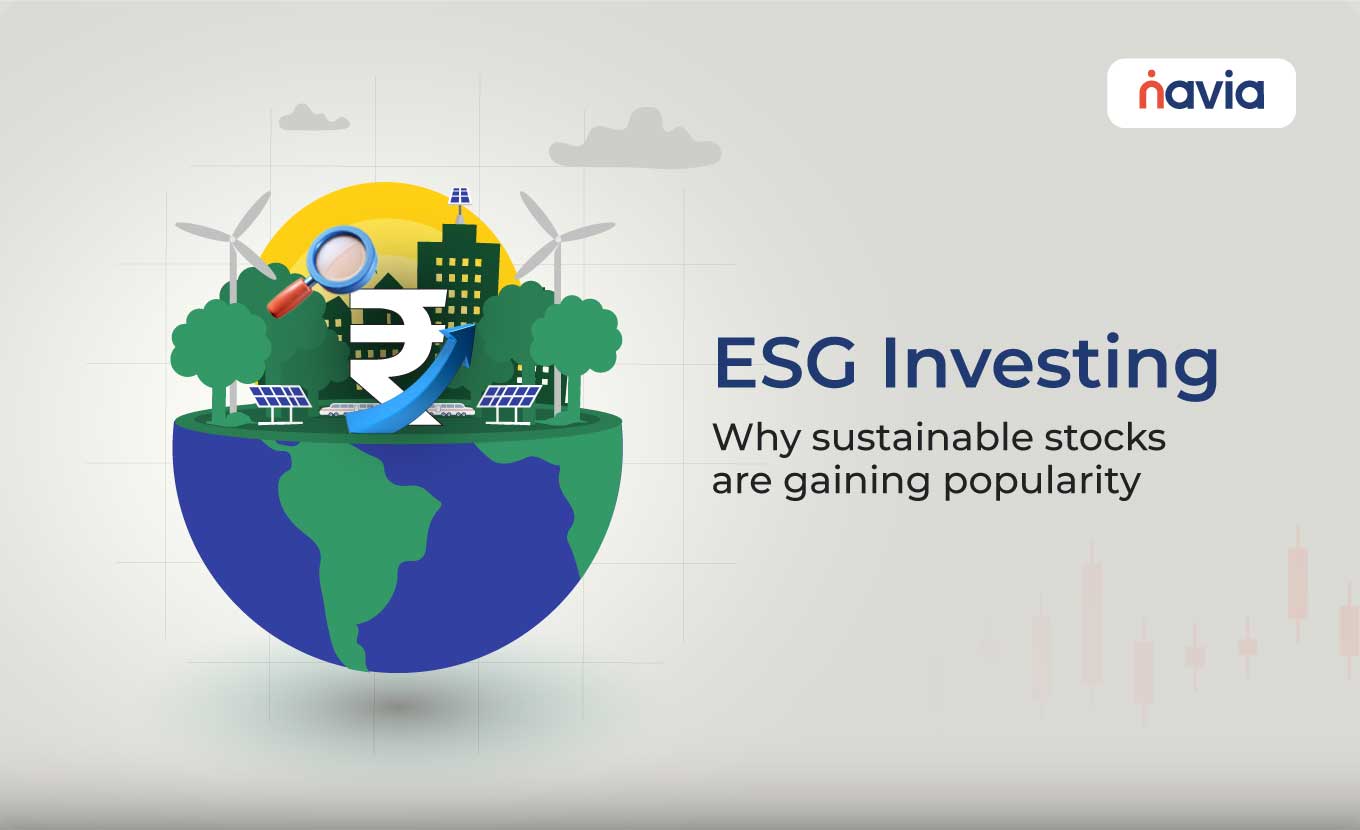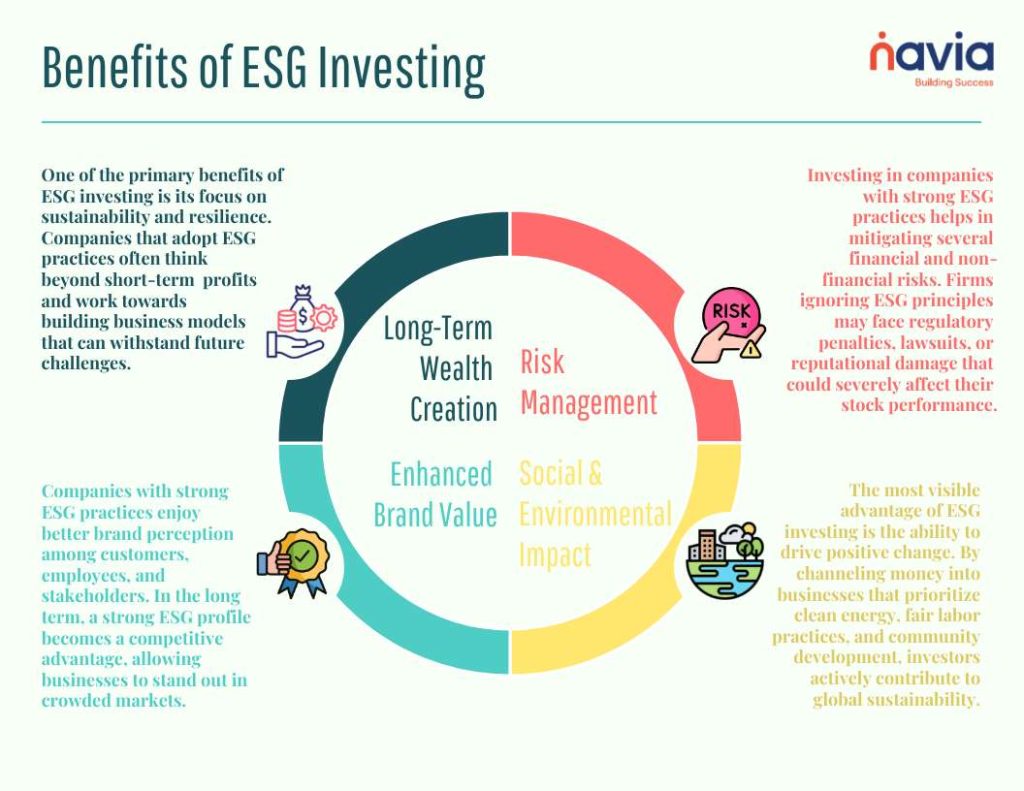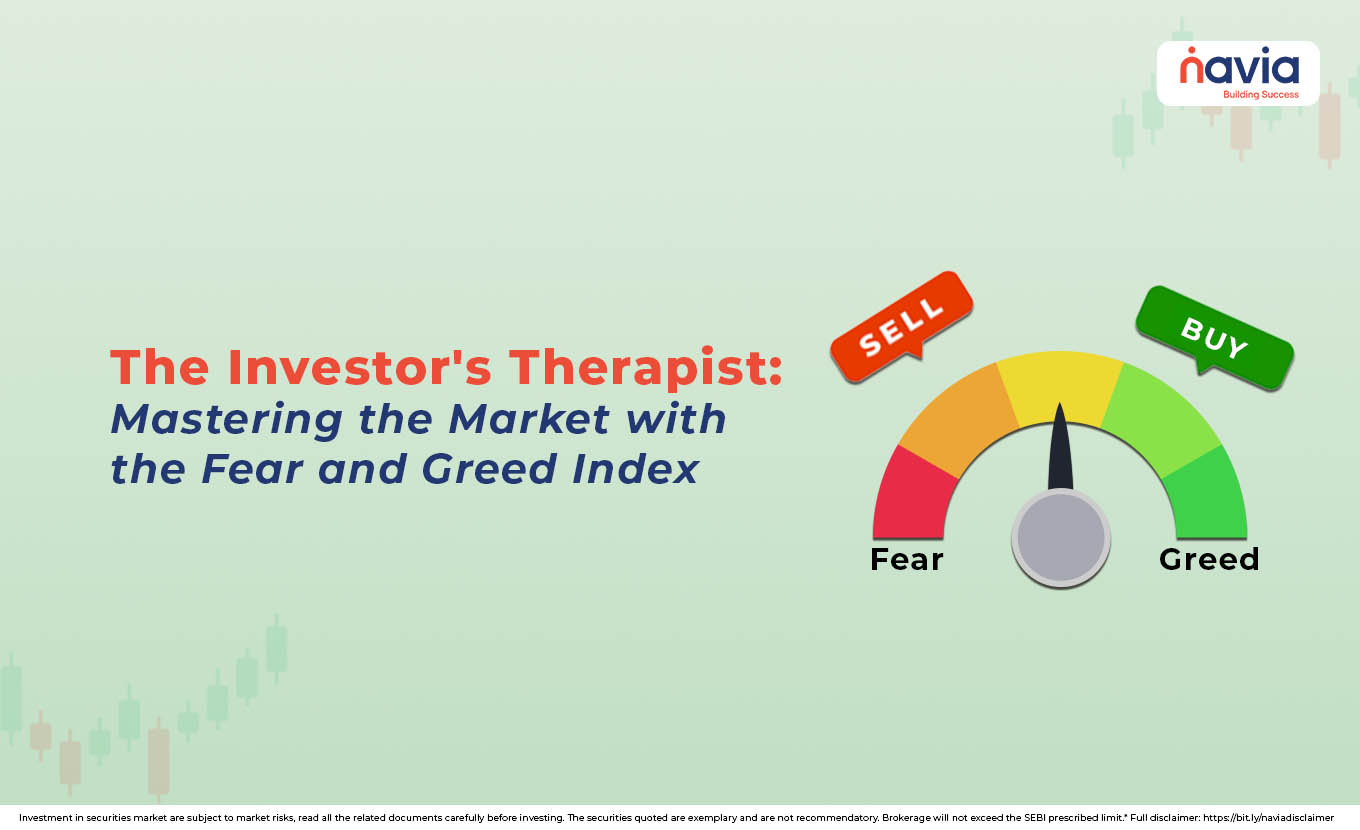ESG Investing: Why Sustainable Stocks Are Gaining Popularity

- What is ESG Investing?
- Why ESG Investing is Becoming Popular?
- Benefits of ESG Investing
- Challenges of ESG Investing
- Future of ESG Investing
- Conclusion
- Frequently Asked Questions
The way people invest has changed over the past decade, they are no longer just looking for financial returns – they also want their money to make a positive impact on society and the environment. The shift of this mindset rise to ESG Investing, it is a strategy that considers not only profits but also a company’s impacts on the environment, society and governance.
The awareness about social responsibility and corporate ethics, sustainable stocks are become popular among both retail and institutional investors. In this blog, we will explore what is ESG investing, its meaning, and why it’s gaining such rapid momentum in financial markets in detail.
What is ESG Investing?
Before entering the depths of the term let’s understand what is ESG investing. It’s an investment strategy that evaluates companies based on three main factors, like;
➱ E – Environmental: How does an organization impact the planet? It includes green energy, waste management, deforestation, biodiversity, water conservation, etc.
➱ S – Social: How does a company treat the society/people? It includes human rights, workplace safety, employee welfare, customer satisfaction, data security, etc.
➱ G – Governance: How is the company managed? It looks at political contributions, bribery and corruption, business ethics.
In simple terms. ESG investing means the analyzation of ethical and sustainable practices of a company more than their financial health. Most investors use ESG metrics to decide whether a company is truly sustainable in the long term.
Why ESG Investing is Becoming Popular?
There are several reasons why ESG investing is rapidly gaining popularity worldwide. Let’s see some of them;
Growing Environmental Awareness
Today’s climate changes, deforestation and pollution becoming major issues so, investors are choosing companies that focus on sustainability. The firms who are adopting renewable energy and eco-friendly practices are gaining investor confidence and trust.
Social Responsibility
Modern investors are more care about how businesses treat their employees and customers/society. Companies who promote diversity, fair trade practices and employee well-being will attract long-term investors.

Corporate Transparency
Strong governance is an important factor in building investor confidence. The firms who maintain transparency, ethical leadership and fair shareholder rights get support from ESG investors.
Better Long-Term Returns
Studies have shown that companies with higher ESG scores will outperform more than other firms whose ignore sustainability. By reducing risks like environmental fines, ESG stocks will deliver stable growth to their investors.
Shifting Investor Demographics
The younger generation like Gen Z, are seeking sustainable investment opportunities. Their preference for ethical investing will automatically push the companies and funds to adopt ESG frameworks.
Benefits of ESG Investing
You must understand that ESG investing isn’t just about ethics, it offers tangible financial and non-financial benefits. Some of them are given below;

Challenges of ESG Investing
There is a challenge side of very strategy, like that, ESG investing also faces a few challenges too:
🔸 Data Management: ESG covers areas like environment, social and governance, so it requires both financial and non-financial data. So, organizations should keep these data in separate, unconnected systems.
🔸 Multiple Reporting Frameworks: There are no unified standards or structure for reporting, so the companies use multiple reporting frameworks like, Global Reporting Initiative (GRI) and the Sustainable Accounting Standards Board’s standards (SASB).
🔸 Understanding the impact of ESG: Without integrating ESG reporting into budgeting and planning tools, leaders can’t test scenarios or measure the real impact on profits, cash flow, or balance sheets.
🔸 Defining ESG risks: Many organizations have discussions about ESG risk, but not all have formal definitions and identified systems in place to monitor them, it is considered the major challenge of it.
🔸 Complex Regulations: We know that sustainability reporting rules are becoming stricter and more detailed, making compliance challenging.
Future of ESG Investing
The future of ESG investing looks promising, because the climate action policies, social awareness and corporate accountability grow are making it a mainstream investment strategy. Some global financial institutions are already incorporating these criteria into their decision-making process.
By using AI-driven tools investors can easily analyze ESG performance of the organizations easily so, keep in mind that these metrics are a very important ratio in evaluating a company’s worth and that has the power to change your future too.
Conclusion
Understand that ESG investing is not just a financial trend, it’s a movement towards responsible and sustainable growth. By focusing on the three factors environmental, social and governance will support organizations to build a better future with long-term financial returns. If you are a beginner or experienced investor, understanding the term will help you make good investment decisions.
ESG strategies may help investors build portfolios that balance financial growth with positive social and environmental impact.
Do You Find This Interesting?
Frequently Asked Questions
What is meant by ESG investing?
ESG investing means putting money into companies that follow strong practices in Environmental, Social, and Governance areas. It considers not just financial returns, but also how a business impacts the planet, society, and how responsibly it is managed.
What is an example of ESG investing?
An example of ESG investing is buying shares in a company that uses renewable energy, treats its employees fairly, and maintains transparent corporate governance.
Is ESG investing a good idea?
Yes, ESG investing is considered a good idea for long-term investors. It helps you support responsible businesses while also managing risks related to climate change, regulations, and social responsibility.
What are the 4 pillars of ESG?
The four pillars of ESG are:
➢ Environmental – impact on nature.
➢ Social – treatment of employees, customers, and communities.
➢ Governance – business ethics, transparency, and management accountability.
➢ Sustainability – the overall ability to balance growth with long-term responsibility.
What is the biggest risk of ESG?
The biggest risk of ESG investing is the lack of standardization. Different rating systems, unclear definitions, and inconsistent reporting make it difficult to compare companies.
DISCLAIMER: Investment in securities market are subject to market risks, read all the related documents carefully before investing. The securities quoted are exemplary and are not recommendatory. Full disclaimer: https://bit.ly/naviadisclaimer.






